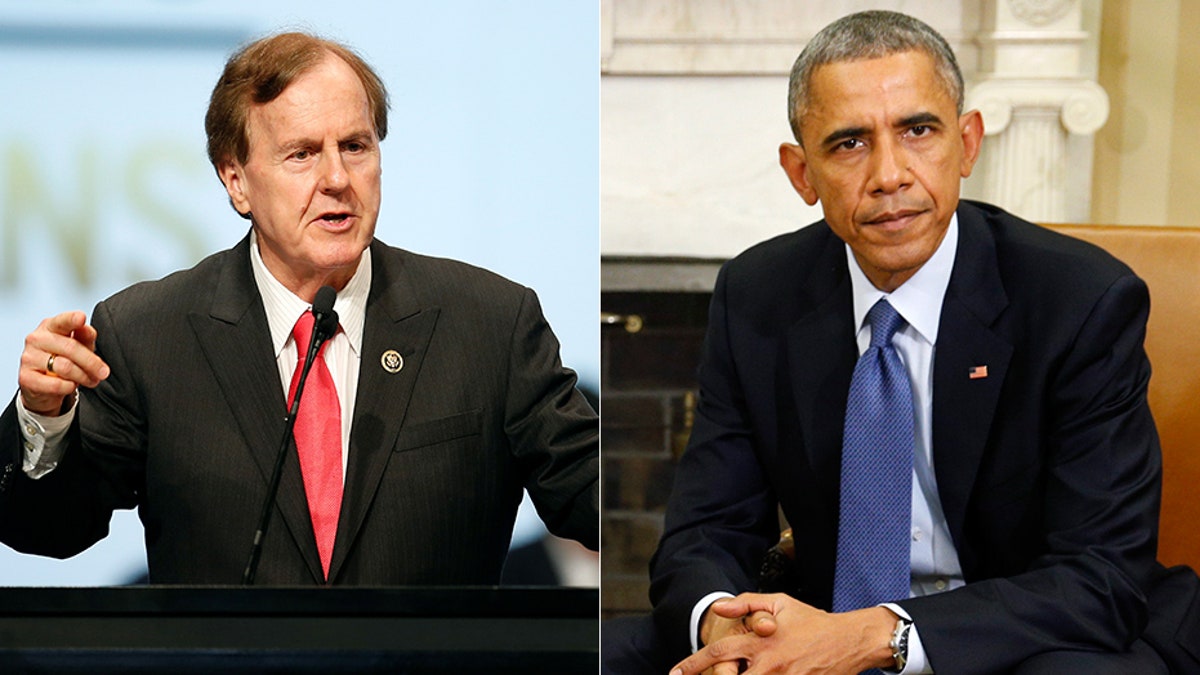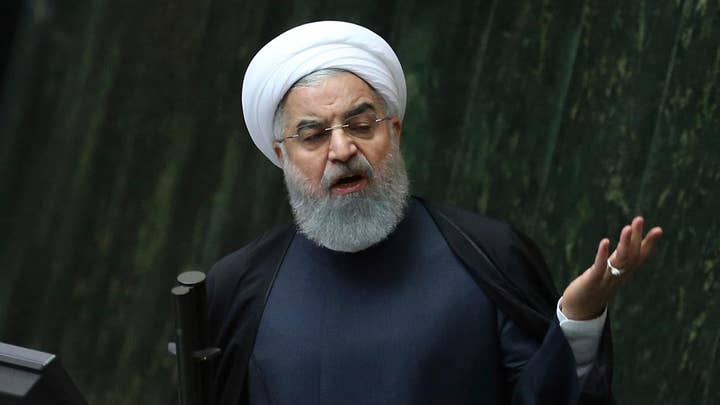
Rep. Robert Pittenger of North Carolina called for an investigation into a report on the Obama administration's handling of an anti-Hezbollah task force. (REUTERS/Chris Keane, Kevin Lamarque, File)
A Republican congressman on Monday urged the House to look into a report the Obama administration held up a Drug Enforcement Administration task force’s investigation into Hezbollah’s drug-trafficking and money-laundering operations, all to ensure the Iran nuclear deal remained on track.
After the bombshell exposé in Politico Sunday revealed that Obama administration officials road-blocked the campaign of the task force, Project Cassandra, to curtail the Lebanese militant group’s criminal activities, Rep. Robert Pittenger of North Carolina sent a letter to House Oversight Committee Chairman Trey Gowdy.
“These revelations are shocking and infuriating,” Pittenger said in a statement to Fox News. “While American soldiers were bravely fighting ISIS terrorists, with some paying the ultimate price, the Obama administration reportedly was protecting Hezbollah terrorists who were funding themselves by trafficking illegal drugs. No wonder President Obama couldn’t bring himself to call them ‘Radical Islamist Terrorists.’”
Politico reported that the red tape against Project Cassandra allowed Hezbollah to evolve into a major global security threat bankrolling terrorist and military operations.
When Project Cassandra leaders, who were working out of a DEA’s Counter facility in Chantilly, Virginia, sought approvals for some significant investigations, prosecutions, arrests and financial sanctions, Justice and Treasury Department officials delayed, hindered or rejected their requests, according to Politico.
The report detailed how the closer the U.S. got to finalizing the Iran nuclear deal, the more difficult it was to conduct Hezbollah investigations. After President Obama announced the deal in January 2016, Project Cassandra officials were transferred to other assignments, Politico added.
OBAMA ADMINISTRATION UNDERMINED ANTI-HEZBOLLAH TASK FORCE TO HELP SECURE IRAN NUKE DEAL, REPORT SAYS
“This is the same administration that sent $1.7 billion in cash ransom to Iran,” Pittenger continued in the statement. “The growing nexus between terrorist organizations and Latin American drug cartels poses a grave threat to our national security, especially considering the porous state of our southern border. Last month, I hosted a forum in Buenos Aires for 220 Members of Parliament and government officials from 15 South American countries with government and private sector experts to address the critical challenge of intercepting drug related funding of terrorism.”
Hezbollah was formed by the Iranian Revolutionary Guard in 1982 to fight Israel’s invasion of Beirut. Under the leadership of Hassan Nasrallah, who took over in 1992 after his predecessor, Abbas Mussawi, was killed in an Israeli airstrike, the group moved from seeking to implement an Iranian-style Islamic republic in Lebanon to focusing on fighting Israel and integration into Lebanon’s sectarian-based politics.
Nasrallah, now 57, has played a key role in ending a feud among Shiites, focusing attention toward fighting Israel and later expanding the group’s regional reach.
The Associated Press contributed to this report.













































